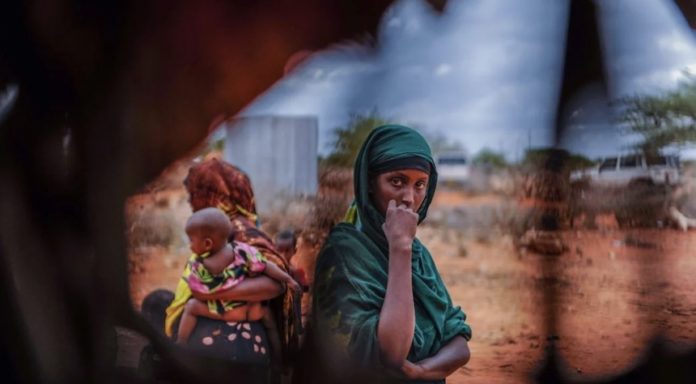Climate change has been called “inherently racist” and “sexist.” It was accused of congenital heart defects.
A Washington Post op-ed suggests that if a man lives in poverty and abuses a woman, he can at least partially blame climate change for his actions.
These three — Geoffrey Ondieki, Disha Shetty, and Aie Balagtas See – tend to write about women and environmental issues.
Their article, published Tuesday at the Post, along with that of the Fuller Project appears to have converged. The article concluded that violence could become more common as extreme weather conditions like climate change increase in intensity and frequency.
Terry McGovern, Columbia University’s chair for the Population and Family Health department, told the Post, “Heat waves and floods, climate-induced catastrophes, increase sexual harassment and mental and emotional abuse, femicide and decrease economic and educational opportunities, and increase risk of trafficking due to forced migration. ”
McGovern acknowledged the fact that there are still gaps in the data.
Nitya Rao (University of East Anglia gender professor) stated, “Climate discourse is all about numbers. But, it is impossible to capture evidence of violence or changes in power dynamics this way. It is therefore not given the same weight. ”
The authors of the article claimed there was no evidence supporting their claims. Instead, they cited the U.N. intergovernmental panel’s latest report on Climate Change which suggested an indirect link between climate change, domestic violence, and bad weather.
According to the U.N. report, “Climate increases conflicts risks by undermining water security and food security,” which could eventually lead to an increase in “violence against women”
This claim was accompanied by a concession: “The effect of climate on socioeconomic, cultural, and political factors is very low.”
Although the report was not as strong as one on proven causes of violence, it noted that there was “limited evidence and high agreement” that domestic violence could be caused by fetching water from countries that are less wealthy, such as those that have been affected by droughts. This is particularly true for hypothetical cases in which women do not complete “daily water-related household chores”.
It was suggested that temperature increases could be related to an increase in conflict risk in certain settings. However, this assertion was accompanied by a cautionary: “Medium agreement with low evidence.”
The report cites a 2020 study that showed no correlation between New York City’s annual homicide rate and its annual temperature. Canada has not reported any links between crime and temperature.
The panel, however, agreed that there was “medium evidence” that LGBTQI, women, and girls are more at risk of violence, harassment, and trafficking during extreme weather events. ”
This claim is notable because it omits the term “climate change”, but instead uses “weather”.
These authors, much like gun control activists who reduce human agency and attribute fault to inanimate objects to poor behavior, are keen to link bad behavior with bad weather, rather than just bad people.
The Post article is about Pilot Lenaigwanai, a Kenyan woman forced to flee by her abusive husband.
Lenaigwanai claims that her husband was abusive prior to the drought, which is currently ravaging Kenya’s northern regions.
While it’s not clear if Lenaigwanai would flee to Umoja refuge in more favorable weather, the article shows that her husband wasn’t abusive due to the drought.
Rommel Lopez is a spokesperson for the Philippine social welfare department. He said that bad weather can worsen preexisting frustrations.
“Family members can become frustrated when they are faced with a conflict, natural disaster, or other calamities. ”
Shilpi Singh was a woman who helps women in India’s poorest state. “It all boils down to economic distress. “




